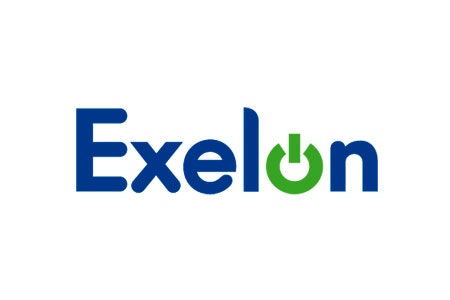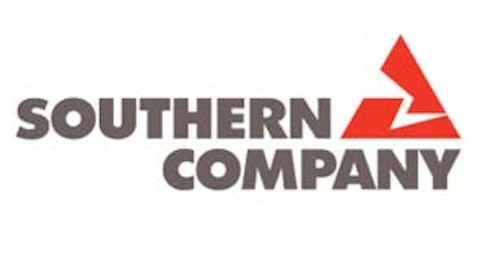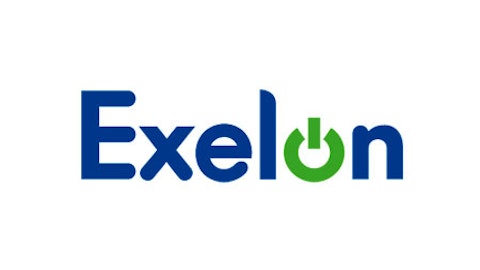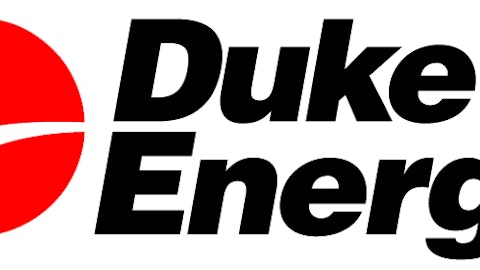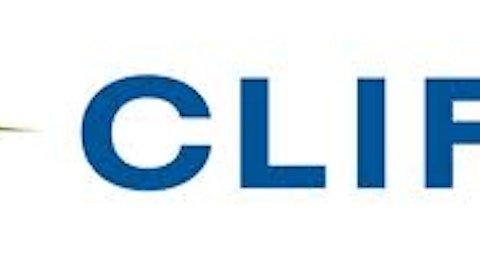This is not a drill; please proceed in an orderly fashion away from this stock. I wish there was an announcement like this to warn investors when they are about to buy a stock that isn’t going to make them money. However, until someone devises a system to warn investors, we can only go by the numbers, and sometimes our gut feelings about a company. What I’m here to tell you is, based on the numbers and my gut feeling, Exelon Corporation (NYSE:EXC) investors are in for more pain.
My own experience
I used to own Exelon Corporation (NYSE:EXC), and I loved the stock’s yield. Admittedly, I was caught off guard when the company announced its dividend cut. However, when I looked at the situation more carefully, I could see my mistakes.
Exelon Corporation (NYSE:EXC) was a company with a lower debt-to-equity ratio than its peers, and I assumed that made the stock safer. At the time, the company was producing positive free cash flow, and looking at analysts’ projections for EPS growth of about 5%, I figured a 7% yield and a 5% growth rate would give me a nice 12% combined return.
You know that old saying…
The problem with my assumptions were several fold. First, I assumed that Exelon Corporation (NYSE:EXC)’s yield of 7% would hold up. Second, I assumed that the company would be able to grow their earnings. Third, I assumed that a lower debt-to-equity ratio meant that the dividend was safer. Unfortunately, none of these assumptions came to fruition.
The old saying, “if it sounds too good to be true, it probably is,” applies perfectly to Exelon Corporation (NYSE:EXC). The 7% yield I was expecting turned into a yield of about 4% if you bought shares today. In fact, Exelon Corporation (NYSE:EXC)’s yield is the first reason to avoid the stock. With peers like Consolidated Edison, Inc. (NYSE:ED) paying about 4.4%, Duke Energy Corp (NYSE:DUK) paying 4.6%, and The Southern Company (NYSE:SO) paying about 4.7%, why would you accept a lesser amount?
The second reason to avoid the stock is, the company carries the only negative expected growth rate of the bunch. Analysts expect 2.27% EPS growth from Consolidated Edison, Inc. (NYSE:ED) over the next few years, 4% from Duke Energy Corp (NYSE:DUK), and almost 5% EPS growth from The Southern Company (NYSE:SO) Compare these numbers to an expected decline of 3.4% at Exelon, and you can see the company has problems. To put this in plain English, today’s total expected return (yield + EPS growth) from Exelon is a measly 0.60%. Why anyone would invest in the stock market for a 0.60% return is beyond me.
All that talk
Several articles have suggested that Exelon might be a good play in the future, because their large nuclear assets could be considered a play on “clean energy.” There is just one big hole in that theory, no one cares if it isn’t cost efficient.
The company’s nuclear assets are actually the third reason to avoid Exelon. The company reported less planned and unplanned outage days, but cited “high nuclear fuel costs” as a primary reason for their earnings decline. Of their peers, only Duke Energy Corp (NYSE:DUK) saw an earnings decline in the last quarter, and that was primarily due to merger expenses. With Exelon reporting declining earnings and their peers growing, it looks like the analysts are right in expecting this decline to continue.
The numbers don’t lie
Everything else might be up for debate, but none of it matters if the company can’t turn their income and cash flow situation around. This brings us to the fourth reason investors should avoid the stock, the company’s interest expense is sky high compared to their peers.
Just as an example, The Southern Company (NYSE:SO) pays about $0.24 of each $1 in operating income towards interest. Consolidated Edison pays $0.27 of each $1 toward interest, and Duke Energy Corp (NYSE:DUK) pays about $0.30. By comparison, Exelon paid $1.23 of every $1 in operating income towards interest. When a company has to pay more in interest than they generate in operating income, you know there won’t be much left for shareholders.
The last reason to avoid Exelon comes from their cash flow statement. In the last quarter, the company generated a negative $429 million in core free cash flow. Core free cash flow is simply the company’s net income, plus depreciation, minus capital expenditures. Considering Exelon’s size, this was particularly troubling because their larger competition did much better.
Duke Energy Corp (NYSE:DUK) is a much larger company, yet they generated negative core free cash flow of $319 million. To make things worse, both Consolidated Edison, Inc. (NYSE:ED) and The Southern Company (NYSE:SO) reported negative core free cash flow of about $90 million. To put it another way, Exelon’s peers outperformed the company by 25% to 78% when it comes to free cash flow.
The bottom line is, not only does a dividend cut look likely, but the dividend could be eliminated completely. Ask yourself how much the company can afford to pay if they are burning through cash, and already have much higher interest costs than their peers? Considering the stock’s combined total return is only 0.6% today, imagine how scary that number becomes if the dividend is axed again. Actually, don’t imagine it, just do yourself a favor and switch to another utility stock right now.
Chad Henage has no position in any stocks mentioned. The Motley Fool recommends Exelon and Southern Company. Chad is a member of The Motley Fool Blog Network — entries represent the personal opinion of the blogger and are not formally edited.
The article 5 Reasons Another Dividend Cut Is Likely originally appeared on Fool.com is written by Chad Henage.
Copyright © 1995 – 2013 The Motley Fool, LLC. All rights reserved. The Motley Fool has a disclosure policy.
